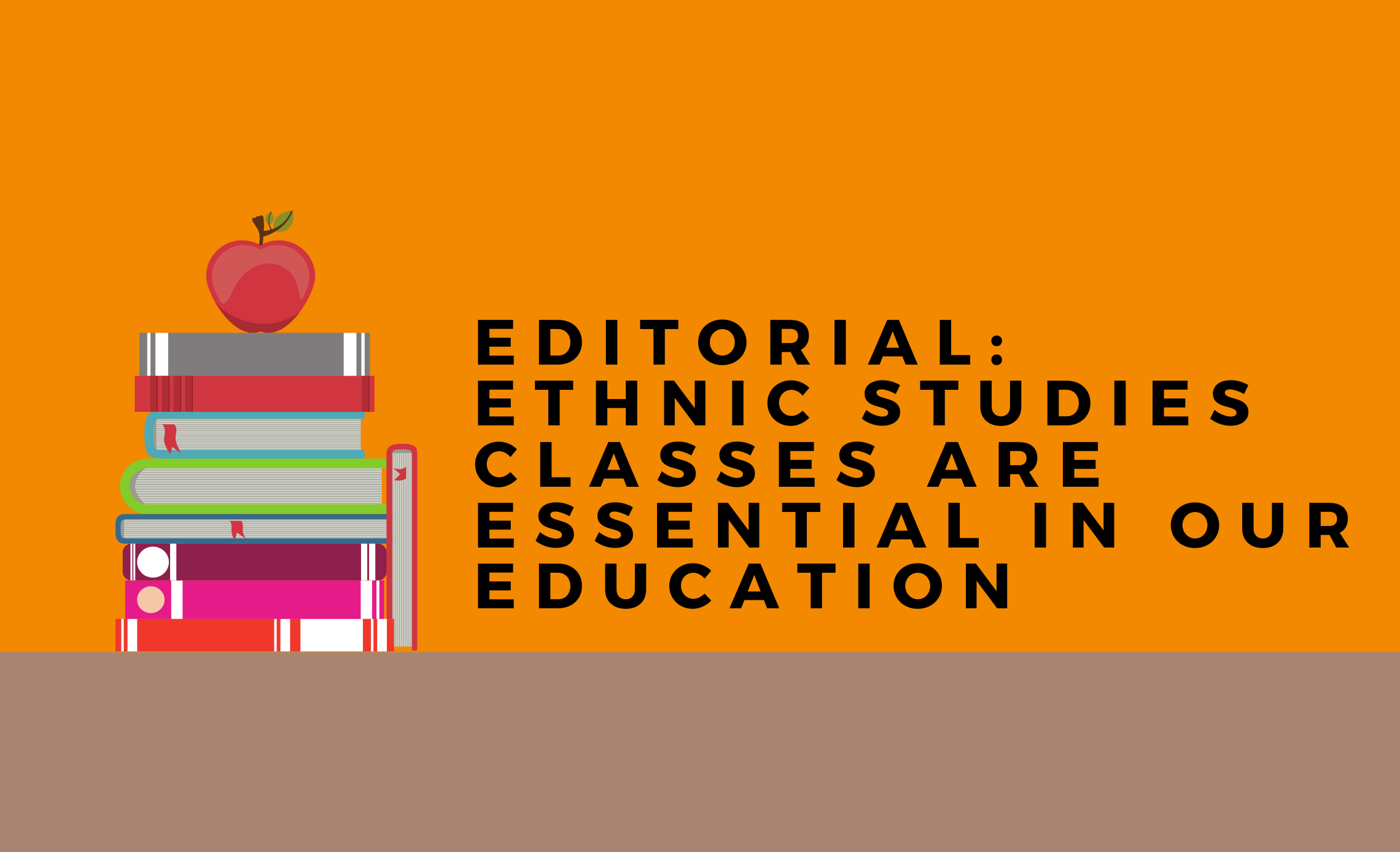*Update October 7* As of September 30, Gov. Gavin Newsom has vetoed the Ethnic Studies bill due to criticism on the draft curriculum from Jewish groups saying that it’s antisemitic and politically biased. The CA Department of Education is working to revise the curriculum with additional materials and public comments. State Assemblymember Jose Medina, one of the main writers of the bill, hopes to reintroduce the bill to the Legislature in December.
The Opinion of the Smoke Signal Editorial Board
In the wake of revived discussions about diversity and systemic racism spurred by the Black Lives Matter movement, Gov. Gavin Newsom is expected to sign Assembly Bill 331 (AB 331) that would mandate an Ethnic Studies course as a graduation requirement for all CA high school students starting in the 2025-26 school year.
If implemented, the Ethnic Studies course curriculum will highlight the racial and cultural identities of ethnic groups, specifically African American, Asian American, Native American, and Latinx American people, in the US. Bringing awareness to issues that minorities face in this country is the most essential step towards creating long term systemic change within society.
Despite the importance of having an Ethnic Studies course and learning about the role that race plays in daily life, students may still view the course as unimportant or just another mandatory class on their schedule.
However, in the same way that our mandatory Health class teaches us about leading healthy lifestyles with conversations about our nutritional, mental, and sexual health, an Ethnic Studies class would shed light on the problems that minority populations in the US face every day by teaching students the history, culture, and struggles of these groups. Students cannot brush off Ethnic Studies as unimportant—the course would provide students with a new lens to view race and ethnicity and give students a chance to commit to social change.
With the root of systemic racism lying in the discourse we’re surrounded with every day, becoming more aware of race-related issues that affect minority groups is crucial to start actively working against those issues from a young age.
As students who are part of a relatively privileged community, it is essential that we educate ourselves about issues facing minorities in order to truly understand racial inequalities, advocate for social justice, and empower minorities.
Though our course catalog includes typical history classes, the curriculum taught in these courses are often told from a Eurocentric point of view, leaving little room for the perspectives and narratives of marginalized groups. Classes like World History, which imply a focus on countries and cultures all around the world, focus instead on European imperialism and how global events affected Europe and America. Though this curriculum does its part to introduce students to European and American history, it fails to educate students on different cultures.
An Ethnic Studies class would create a space to discuss the ethnicities we often feel are missing or misrepresented from our curriculum, including Middle Easterns, Native Americans, and European ethnic minorities, allowing us to acknowledge their struggles throughout the history of the US.
Bringing the voices of minorities to the forefront of our education is the most effective way to bridge the gap between groups of different ethnic backgrounds across the US, as education and awareness is the first step towards creating long-term change for future generations.
Our perception of Ethnic Studies should be more than just one extra required class in high school for unnecessary knowledge; it should be seen as a catalyst towards promoting inclusivity of racial minorities across the country. Legislation that mandates this kind of an educational requirement for students across CA is an unprecedented commitment towards creating systemic change against racial inequalities all over the world.


Be the first to comment on "Editorial: Ethnic Studies Classes Are Essential in Our Education"